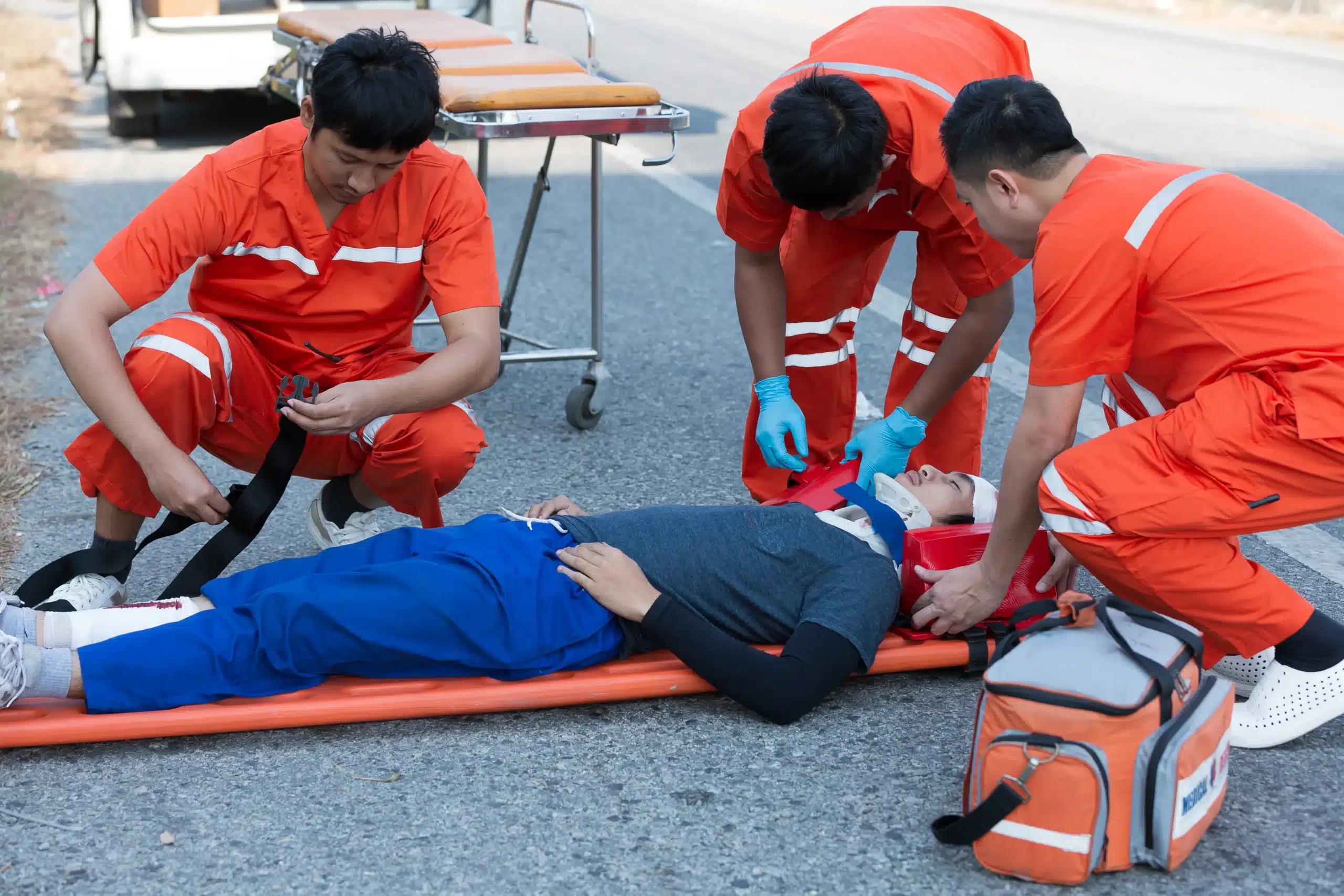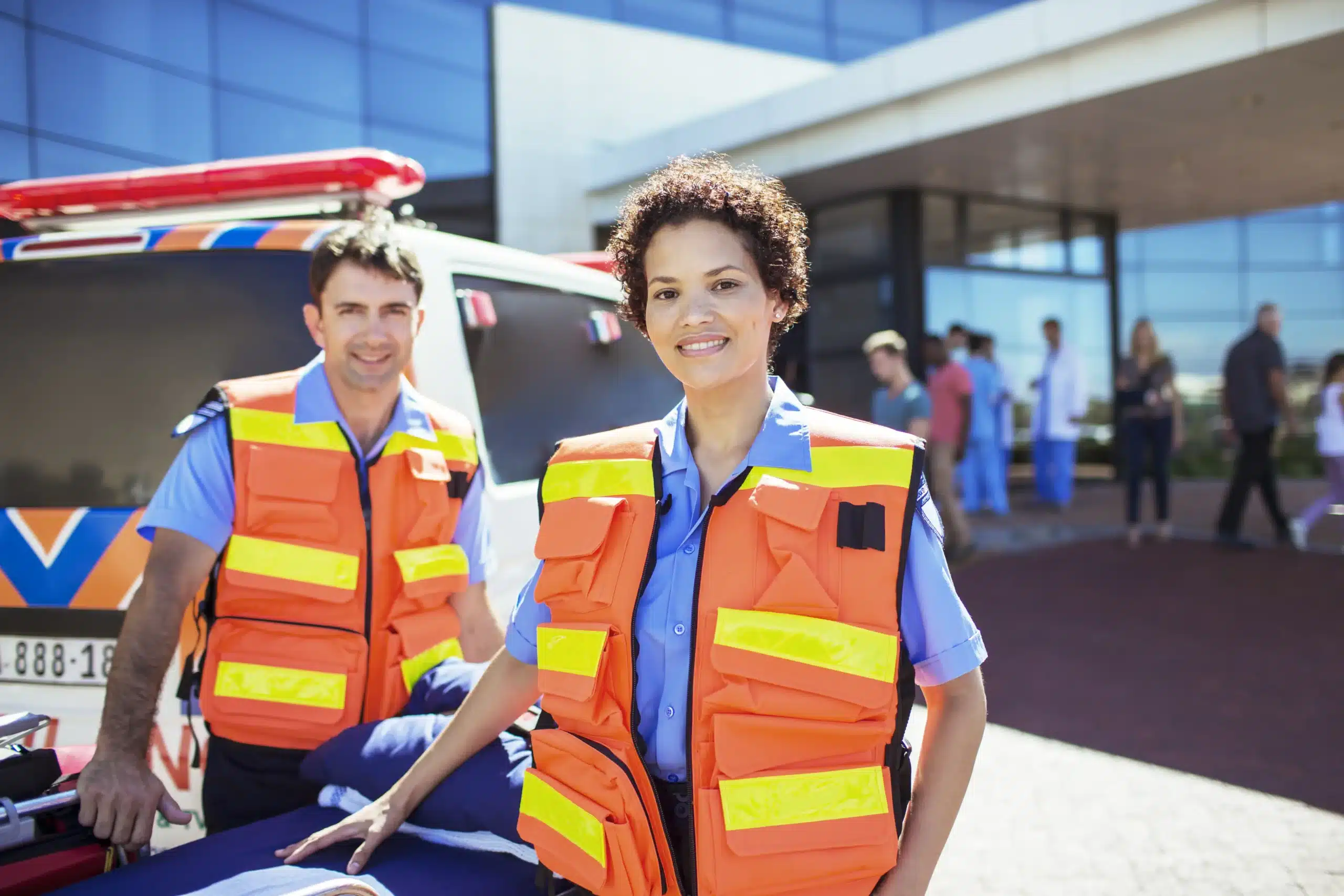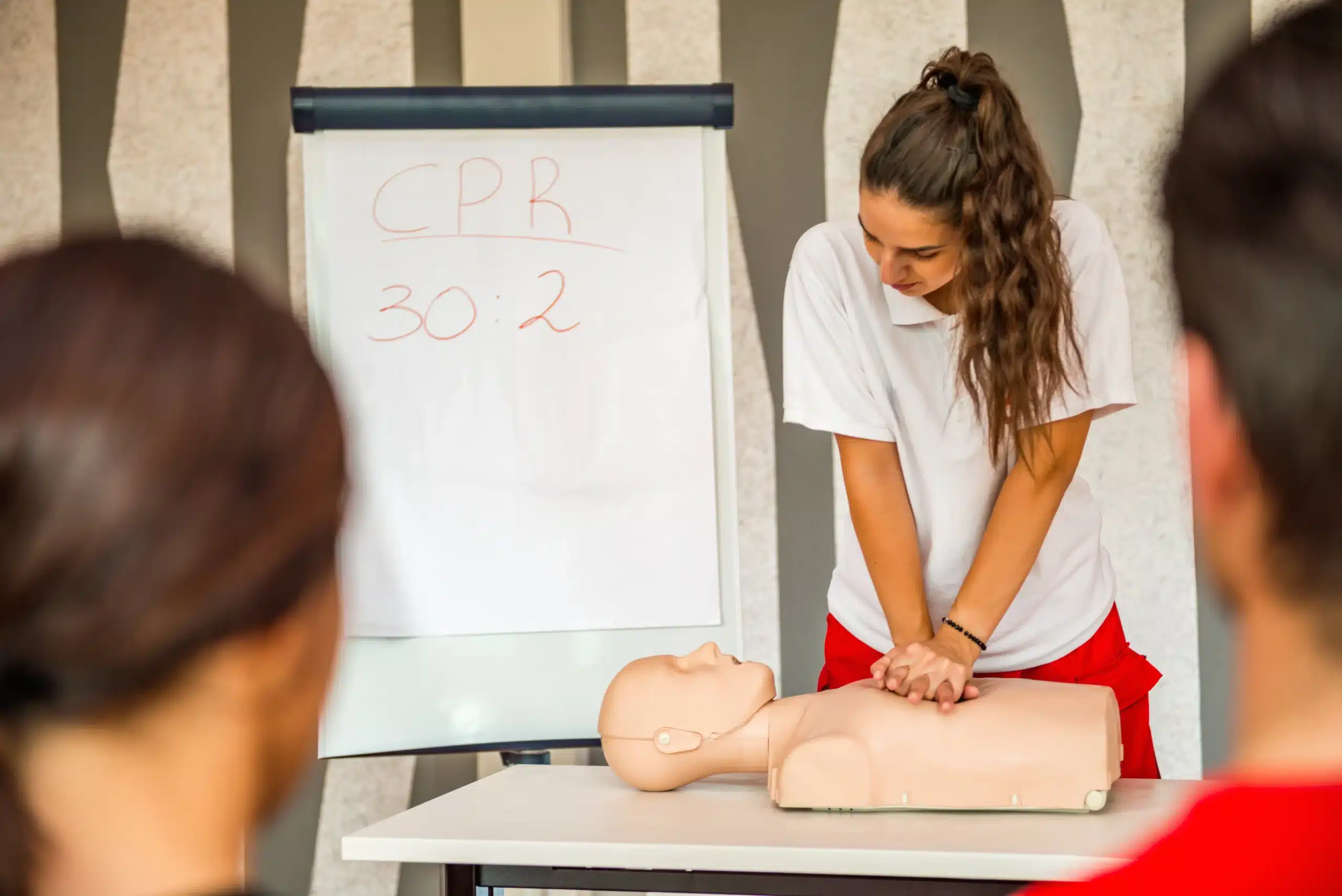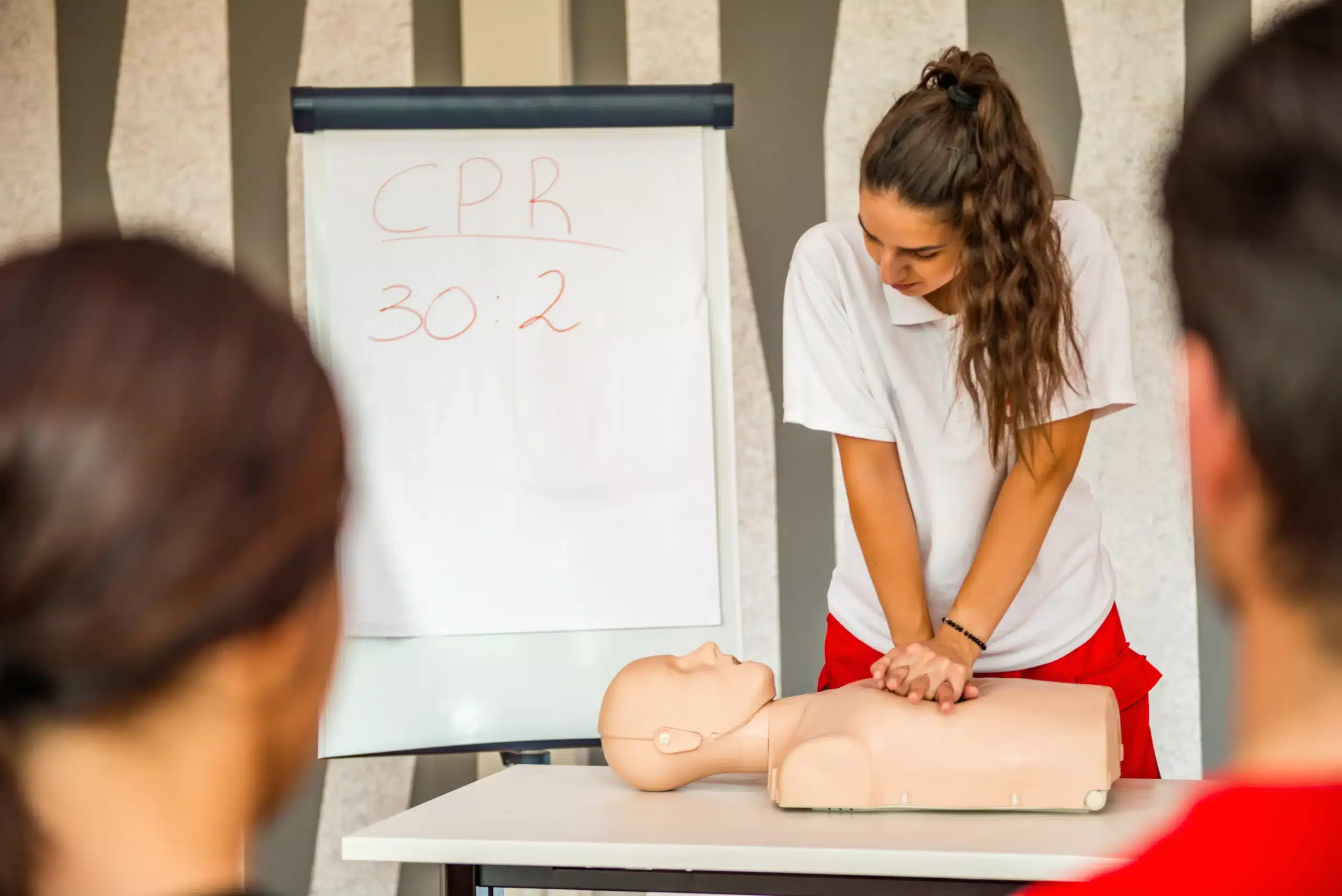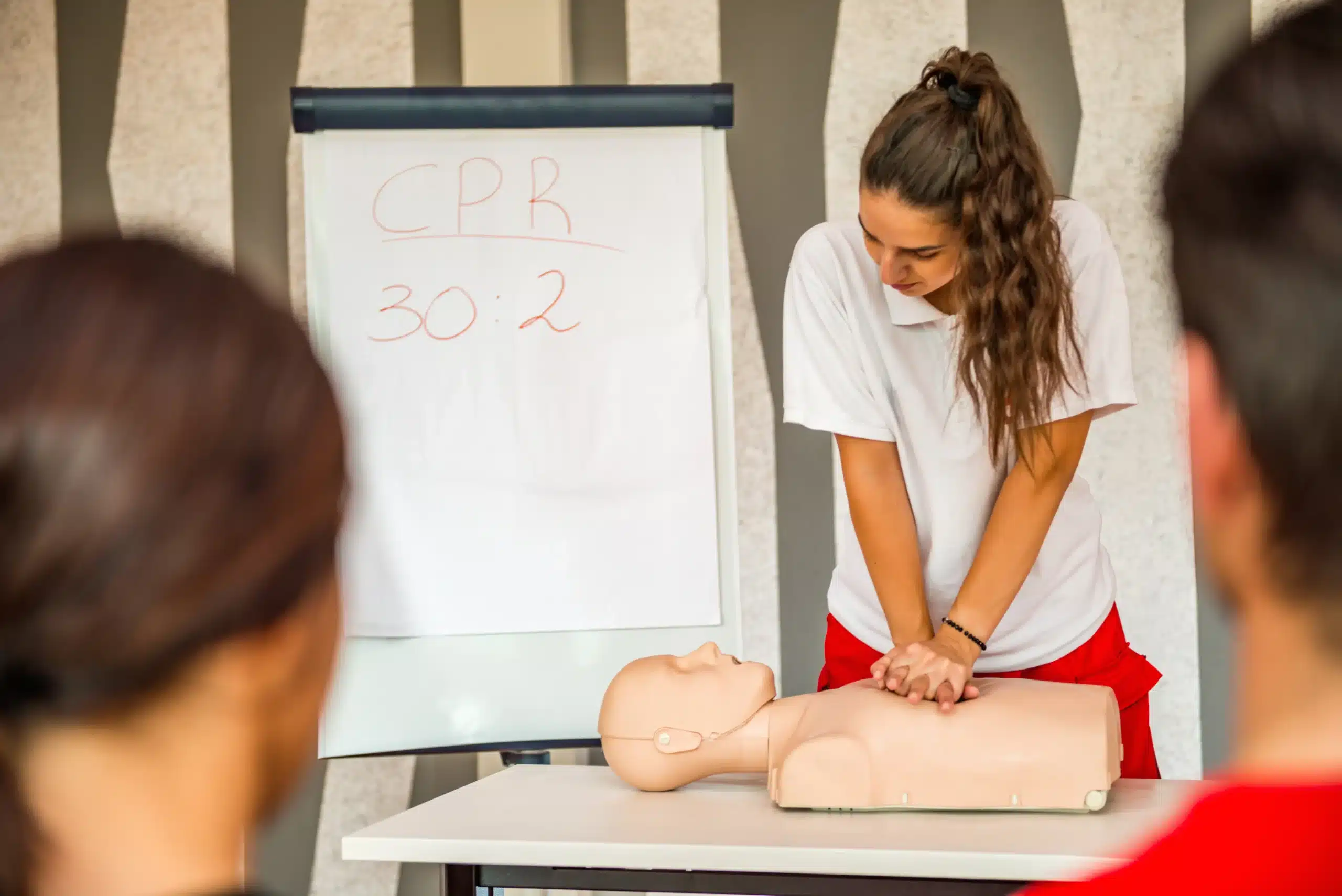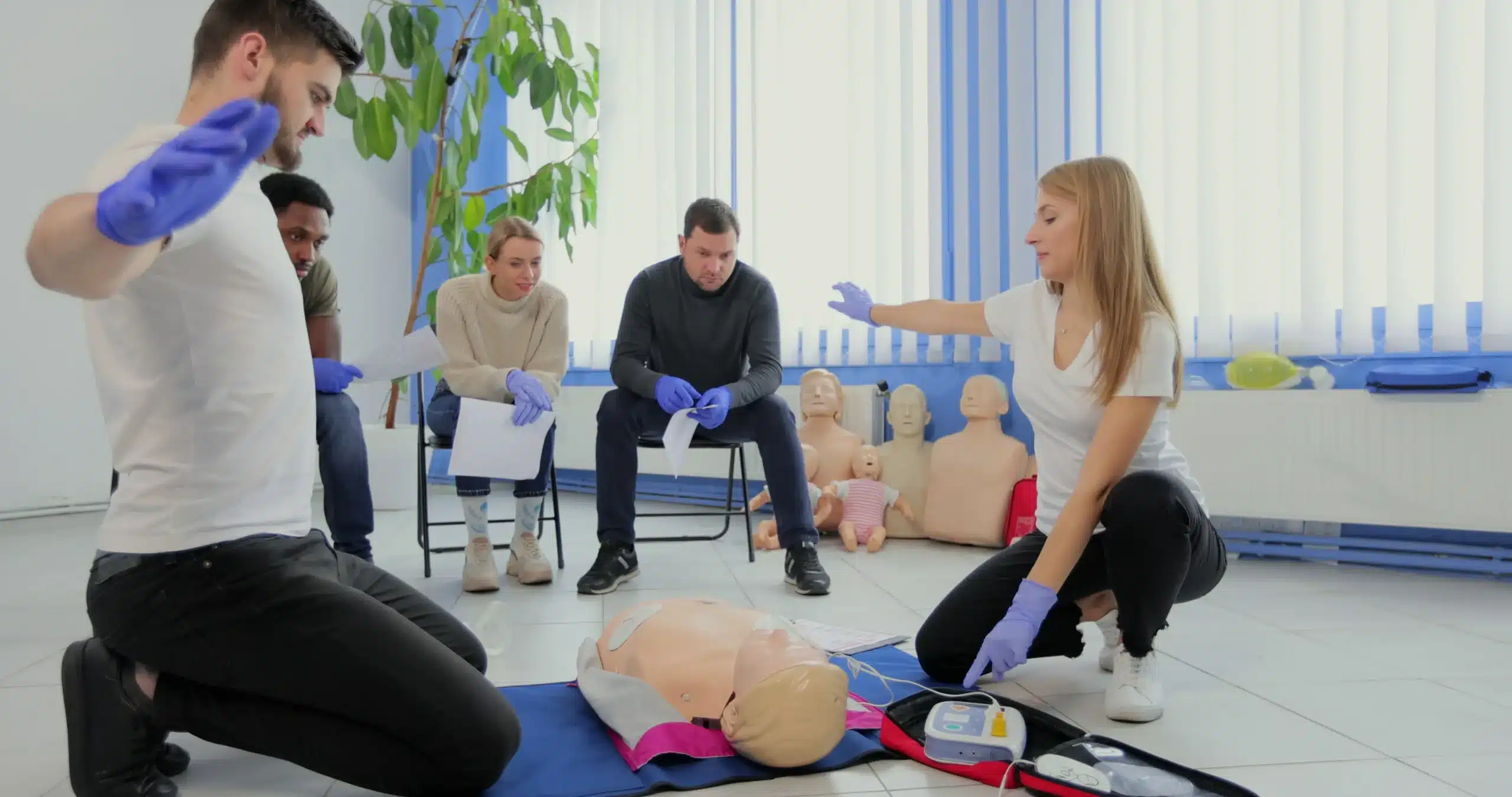Knowing how to perform CPR can make you an invaluable asset in any situation, from a medical emergency to a workplace accident. This guide provides a practical overview of CPR training, covering the essential skills, the different certification levels, and the benefits of getting certified. Whether you’re looking to advance your healthcare career or simply want to be prepared for emergencies, we’ll explore the key components of CPR, how to choose the right training program, and the importance of staying up-to-date with the latest guidelines. We’ll also touch on resources available in different areas, including options like a cpr training center in san jose, to help you find the training you need.
Key Takeaways
- CPR training equips you to handle emergencies: Learning CPR and obtaining certification provides you with the essential skills and confidence to respond effectively in life-threatening situations, improving the odds of survival.
- Find the right CPR class for your needs: Consider factors like instructor experience, class schedules, location, and the types of certifications offered when selecting a training center. Convenient options like group discounts and blended learning formats can make the process smoother.
- Maintain your CPR skills for long-term preparedness: Stay up-to-date with the latest guidelines by renewing your certification regularly and pursuing continuing education opportunities to keep your skills sharp and your knowledge current.
What is CPR Training and Why Does it Matter?
CPR training gives you the skills and confidence to respond effectively in life-threatening emergencies. It empowers you to provide immediate assistance to someone experiencing cardiac arrest, breathing difficulties, or choking. Learning CPR can dramatically improve the odds of survival while waiting for professional medical help to arrive. It equips you with the knowledge and techniques to assess the situation, perform chest compressions, provide rescue breaths, and maintain crucial life support until paramedics take over.
Key CPR Training Components
CPR classes cover essential topics and techniques. You’ll learn how to recognize the signs of a cardiac arrest, when to call 911, and how to deliver effective chest compressions and rescue breaths. Many courses, like those offered at Concord CPR Classes, also include training on using an automated external defibrillator (AED) and how to help someone who is choking. The American Heart Association (AHA) provides guidelines for CPR courses, including Basic Life Support (BLS) certification for both healthcare providers and the general public. You can find more information on BLS certification on the Concord CPR Classes website. These courses often offer different levels of certification to meet various needs, from basic life-saving skills to more advanced medical certifications like ACLS and PALS. Concord CPR Classes offers both ACLS and PALS certification courses.
Benefits of CPR Certification
Getting CPR certified offers numerous benefits, both personally and professionally. It provides the peace of mind that comes with knowing you can help in a crisis. Whether you’re a healthcare professional, a parent, a teacher, or simply someone who wants to be prepared, CPR training equips you to respond effectively and potentially save a life. Professionally, CPR certification is often a requirement for many jobs in healthcare, education, and childcare. It demonstrates your commitment to safety and your ability to handle emergencies. Having a CPR certification on your resume can make you a more competitive candidate. Concord CPR Classes offers group discounts for workplaces or groups of friends who want to get certified together.
CPR Courses in Concord
Concord CPR Classes offers a variety of courses to suit different needs, from basic first aid to advanced life support. Whether you’re a healthcare provider, a concerned parent, or simply want to be prepared for emergencies, we have a course for you. We serve Concord, Walnut Creek, and Pleasant Hill.
CPR and First Aid Courses
This combined CPR and First Aid course provides a foundational understanding of how to respond to both life-threatening and non-life-threatening situations. You’ll learn essential skills like CPR for adults, children, and infants, along with how to manage common injuries like cuts, burns, and sprains. This training empowers you to confidently handle various emergencies.
Basic Life Support (BLS) Training
BLS training is crucial for healthcare professionals and anyone in a position requiring advanced life-saving skills. This course covers high-quality CPR techniques, effective team dynamics, and the use of an AED. Concord CPR Classes follows the American Heart Association guidelines, ensuring you receive up-to-date and reliable instruction. We also offer the RQI program for quick recertification. Check out our discounted group rates as well.
Advanced Cardiovascular Life Support (ACLS)
The ACLS course builds upon BLS skills, focusing on the advanced treatment of cardiovascular emergencies. Designed for healthcare providers, this course covers topics like airway management, pharmacology, and effective team resuscitation. Certification demonstrates a high level of proficiency in managing complex medical situations.
Pediatric Advanced Life Support (PALS)
PALS training equips healthcare providers with the specialized knowledge and skills needed to respond to pediatric emergencies. This course emphasizes the unique physiological differences between children and adults, providing targeted training for effective interventions. Concord CPR Classes offers comprehensive PALS certification to help you provide the best possible care for young patients.
How to Choose a CPR Training Center
Finding the right CPR training center is crucial for a positive and effective learning experience. Here’s what to consider when making your decision:
Instructor Qualifications and Experience
Look for training centers with certified instructors who have extensive experience. Experienced instructors create engaging and informative sessions that cater to different learning styles. Check if the instructors are certified by a reputable organization like the American Heart Association (AHA). Their instructor qualifications often indicate a commitment to maintaining high standards. A good instructor can make all the difference in your confidence and ability to perform CPR effectively.
Class Schedules and Locations
Convenience matters, especially when balancing work, family, and other commitments. Choose a training center that offers flexible class schedules and convenient locations. Think about factors like commute time and parking availability. Do they offer classes on weekends or evenings? The ideal training center should fit seamlessly into your schedule. Concord CPR Classes, for example, serves the wider Concord area, including Walnut Creek and Pleasant Hill.
Facility and Equipment Quality
A quality learning environment includes a clean, comfortable facility with up-to-date equipment. Manikins, AED trainers, and other training tools should be in good working order to simulate real-life scenarios effectively. A well-maintained facility shows that the training center prioritizes a quality learning experience. You’ll learn best in a comfortable and well-equipped space.
Industry-Recognized Certifications
Ensure the training center offers certifications from nationally recognized organizations like the American Heart Association (AHA). AHA certifications are widely accepted and respected, and often required by employers and regulatory bodies. Verify that the certification you receive aligns with your professional requirements. For healthcare providers, certifications like BLS, ACLS, and PALS are often essential. Concord CPR classes offers these certifications, including BLS, ACLS, and PALS courses.
CPR Training Costs
CPR training is an investment in life-saving skills, and understanding the costs involved helps you budget effectively. Several factors influence pricing, so let’s break them down.
Factors Affecting Course Pricing
CPR class costs depend on several factors, including the type of course, the format, and the location. A basic adult CPR and First Aid course will typically be less expensive than a more comprehensive course that includes infant and child CPR. The course format also plays a role. In-person classes, with their limited capacity and instructor time, are generally more expensive than online or blended learning options. Location also matters. CPR training costs in Concord might differ from those in nearby cities like Oakland, as discussed in this helpful resource on CPR class costs in Oakland.
Course Fees
Course fees typically cover instruction, materials, and certification. Some training centers, like AllCPR San Jose, offer a range of CPR courses, including those certified by the American Heart Association (AHA) and the American Red Cross. Others, such as the CPR Training Center in San Jose, focus on AHA-certified courses like BLS, ACLS, and PALS. When choosing a provider, confirm they offer the certifications you need.
Group Rates and Discounts
If you’re training with a group, ask about discounts. Many providers, like CPR Training Center, offer reduced rates for group bookings, which can be a smart choice for workplaces, community organizations, or families. Some centers also offer discounts to healthcare students and other professionals. It’s always worth asking about potential cost savings.
Get CPR Certified
So, you’re ready to learn CPR? Great! This section breaks down everything you need to know about getting certified. We’ll cover the process, how to keep your certification current, and the different learning options available.
Steps to Certification
Getting your CPR certification is straightforward. First, find a reputable training center, like Concord CPR Classes, that offers courses meeting American Heart Association (AHA) guidelines. We offer various courses, including Basic Life Support (BLS) for healthcare providers and the general public. Check out our BLS course page for more details. Once you’ve chosen a course, simply register and complete the training. Our classes combine instruction, demonstrations, and practice sessions to build your confidence in performing CPR.
Renewal Requirements
CPR skills and knowledge can fade, so renewing your certification is essential. The AHA recommends renewing your CPR certification every two years. This ensures you stay up-to-date with the latest guidelines and best practices. Concord CPR Classes offers convenient renewal courses to help you maintain your skills and keep your certification current.
In-Person vs. Online Training
You have options when it comes to learning CPR. In-person classes provide hands-on training and direct interaction with instructors, allowing for personalized feedback and confidence-building. If your schedule is tight, blended learning options combine online coursework with in-person skills sessions. This offers flexibility while still providing essential hands-on practice. Concord CPR Classes offers both in-person and blended learning formats, so you can choose the training style that works for you.
Top CPR Training Providers Near Concord
Finding the right CPR training center is crucial for a positive learning experience. Here are a few options to consider in the Concord area:
Concord CPR Classes
Concord CPR Classes offers a comprehensive range of safety training courses right here in Concord, CA. They provide BLS, ACLS, PALS, First-aid, and CPR training, making them a convenient one-stop shop for all your certification needs. They also offer discounted group rates and a low price guarantee. For healthcare professionals, their RQI program offers a streamlined path to certification. Serving Concord, Walnut Creek, and Pleasant Hill, their central location makes accessing high-quality training easy and affordable.
Other Options in the Area
While Concord CPR Classes is conveniently located for residents of Concord, Walnut Creek, and Pleasant Hill, you might want to explore other options depending on your specific needs. Nearby cities offer additional training centers. For example, Safety Training Seminars offers AHA-certified courses in several locations, including San Jose. Another option is the CPR Training Center in San Jose, which provides BLS, ACLS, PALS, and First Aid certification. You can also explore options directly through the American Heart Association, which offers a variety of CPR courses. Finally, AllCPR San Jose provides CPR, BLS, and First Aid classes. Remember to research and compare options to find the best fit for your schedule and learning style.
Make the Most of Your CPR Training
Getting your CPR certification is a significant achievement, but it’s not the end of the journey. To truly maximize your training, consider these essential next steps:
Prepare for Your Course
Before your class, take time to prepare. Familiarize yourself with the course content so you can focus on hands-on skills during the training session. Think about your learning style. Do you learn best through hands-on practice or visual aids? Knowing this will help you get the most from your training. Concord offers various CPR training resources. Research local providers like Concord CPR Classes and reach out with any questions. They can offer valuable insights and address any concerns.
Continuing Education
CPR guidelines and best practices evolve, so staying current is crucial. Whether you’re a healthcare professional maintaining certification or refreshing your skills, continuing education keeps you prepared. Look for resources like online refreshers, manuals, or updated CPR courses. Concord CPR Classes offers the American Heart Association RQI program for quick recertification, a convenient option for busy professionals. Regular practice keeps your skills sharp.
Using CPR Skills in Real Life
CPR certification empowers you to act in emergencies. Whether you’re a healthcare worker, a parent, or someone who wants to be prepared, CPR training provides the skills and confidence to respond effectively. Remember, these skills apply everywhere, from your workplace to your home. Consider additional training, such as First Aid, to enhance your ability to help others. While we hope you never need to use your CPR skills, being prepared can make all the difference.
Related Articles
- Why CPR is Critical in Healthcare
- CPR Certification in Concord: Your Complete Guide – Concord CPR Classes
- Why CPR is Important in Healthcare – Concord CPR Classes
- CPR Courses in Concord: Find the Right Class for You – Concord CPR Classes
- CPR & First-Aid in Concord: Your Guide to Certification – Concord CPR Classes
Frequently Asked Questions
How do I choose the right CPR class for me? Consider your specific needs and goals. If you’re a healthcare provider, you’ll likely need BLS, ACLS, or PALS certification. For general knowledge and preparedness, a CPR and First Aid course is a great starting point. Think about your schedule and preferred learning style, too. Some classes offer blended learning with online components, while others are entirely in-person.
What does CPR certification cost? The cost varies depending on the course type, format (in-person or online), and location. Basic CPR classes are generally less expensive than advanced certifications like ACLS and PALS. Check with your chosen training center for specific pricing. Many offer group discounts, so inquire about those if you’re training with colleagues or friends.
How long does CPR certification last, and how do I renew it? CPR certifications are typically valid for two years. Renewal involves taking a refresher course to ensure your skills and knowledge are up-to-date. Many training centers offer renewal courses, often streamlined for those already certified. Check with your certifying organization or training center for specific renewal requirements.
What’s the difference between BLS, ACLS, and PALS? BLS (Basic Life Support) teaches essential life-saving skills, including CPR, AED use, and choking relief. ACLS (Advanced Cardiovascular Life Support) is designed for healthcare professionals and covers advanced techniques for managing cardiovascular emergencies. PALS (Pediatric Advanced Life Support) focuses on the specialized care of infants and children in emergencies.
What if I’m nervous about performing CPR in a real emergency? It’s natural to feel apprehensive, but remember that any attempt at CPR is better than none. High-quality training builds confidence and prepares you to respond effectively. Focus on what you’ve learned, and trust your training. Regular practice and refresher courses can also help maintain your skills and reduce anxiety.



